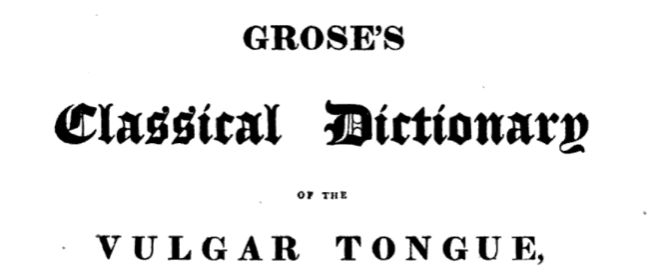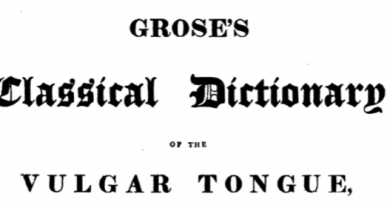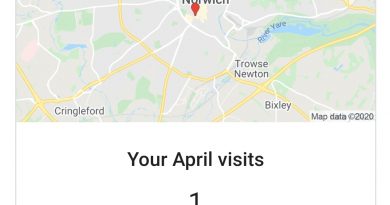Dictionary of the Vulgar Tongue – Day 248, 249 and 250
The Dictionary of the Vulgar Tongue was first published at the end of the eighteenth century, and given that the current health crisis is giving too much time to read books, I thought I’d pick a daily word from it until I got bored…. And to catch up after getting behind with these posts, and because I’m getting towards the end of the book, I’m doing three days at once now. How lovely….
Peter Lay
This is defined by Grose as “the department of stealing portmanteaus, trunks, &c”, which is a throwback to when bags, parcels and trunks were known as ‘Peters’. I’m not quite sure where that word origin came about, but there was another phrase, not mentioned by Grose, which was to “peter-drag”, which was to steal bags from carriages. Google doesn’t much like me searching for ‘Peter Lay’, it seems to think that surely I must mean ‘Peter Kay’….. Anyway, this was one of these phrases, mostly used by the criminal underworld by all accounts (Peter Lay that is, not Peter Kay).
Petty Fogger
This phrase is defined as “a little dirty attorney, ready to undertake any litigious or bad cause: it is derived from the French words petit vogue, of small credit, or little reputation”. The phrase came into use in the sixteenth century and it remains in use today, although it’s usually now just one word such as pettifogging. The OED give a different word origin, noting “from petty + obsolete fogger ‘underhand dealer’, probably from Fugger, the name of a family of merchants in Augsburg in the 15th and 16th centuries.” Grose is right though, the word at the end of the eighteenth century was pettyfogger with the meaning that he gave, but it now tends to mean a lawyer or politician who focuses on small or petty details.
The evolution of the word with its different spellings, showing how frequently it was used in the nineteenth century compared to the twentieth century.
Pharaoh
This word is defined by Grose as “a strong malt liquor”, which sounds rather lovely. As an aside, when this word entered the English language, it was for some time spelled as ‘Pharao’ without the final ‘h’. The word was used in this way from the middle of the sixteenth century to the middle of the nineteenth century, and it likely came from the belief that Pharaoh was a strong or powerful leader, hence a powerful or strong beer.





